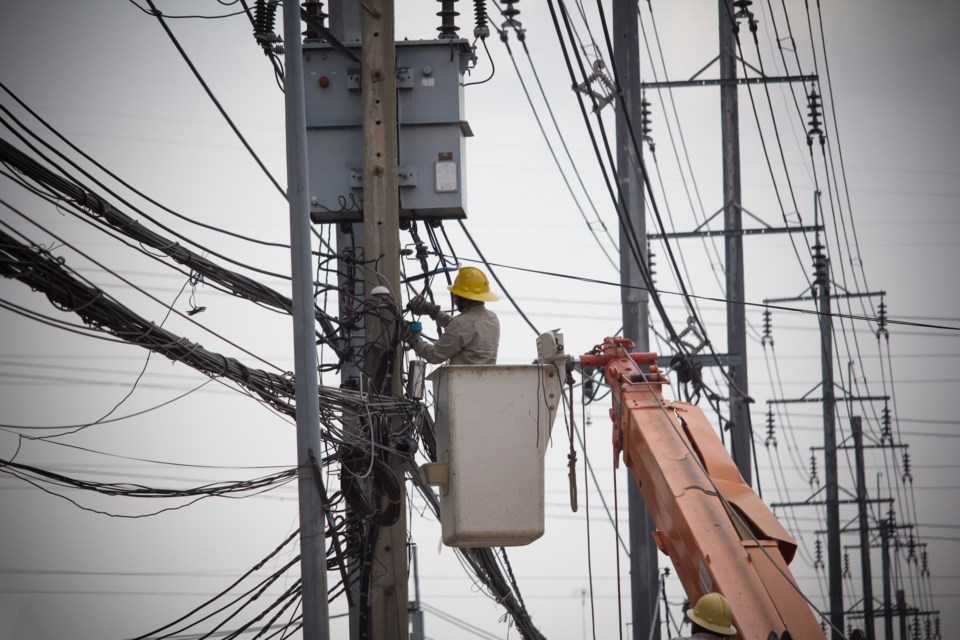A lack of awareness among trades people working around power lines is putting them at risk of electrocution, according to a BC Hydro report.
The report, released Friday, said most incidents occur in spring and summer, most often among those employed in outdoor trades working around overhead power lines.
“BC Hydro data shows over the past three years 61 per cent of reported electrical contact incidents resulting in serious injury or death involved trades workers,” spokesperson Susie Rieder said.
“When temperatures increase, those working jobs such as construction, tree trimming, house painting or window washing typically see their workload and risk of injury rise,” she said.
One in five trades workers has made contact or had a close call with power lines and/or equipment in the course of their work, findings show.
The report found a number of thing about workers:
- 60 per cent said they often work on a job where there are power lines and/or electrical equipment, while 24 per cent sometimes do;
- 43 per cent said they have witnessed unsafe work being performed near power lines or equipment;
- of that 43 percent, 53 per cent, but almost as many (42 per cent) did not end up reporting it;
- 19 per cent have found themselves closer than expected to power lines and/or electrical equipment;
- 71 per cent were unable to identify the correct distance they should keep themselves and tools away from overhead power lines;
- 52 per cent said they could benefit from more on the job electrical safety training, and;
- 60 per cent have received some type of electrical safety training.
The report noted that’s all indicative of a knowledge gap needing to be addressed.
“BC Hydro wants everyone to get home safely at the end of their workday and is urging those who work around power lines and other electrical infrastructure to make safety a priority," the report said.
The situation is one for which provincial workplace safety regulator WorkSafeBC has guidelines.
“Overhead power lines have a limit of approach; a safe distance workers must keep while working. Only trained workers may operate up to the limit of approach. It's important everyone on the job site fully understands the hazards when working close to energized conductors,” WorkSafeBC’s guidance page says.
The regulator’s guidelines are available on WorkSafeBC's website.
Cases of on-the-job electrocution can result in employer lost time injury status and, indeed, wind up before the courts, a survey of B.C. Supreme Court rulings indicates.
Still, the report offers some tips:
- look up and down: observe the site beforehand and plan work to avoid contact with power lines;
- stay back: tools and people should stay at least three metres away from an overhead power line, and;
- call for help: fallen power lines should be reported immediately by calling 911. Those planning work closer than three metres to a power line at a worksite should call BC Hydro in advance.
The power utility offers in-person and online electrical awareness training for those working near electricity, including trade workers, first responders and any member of the public working near high voltage lines.




